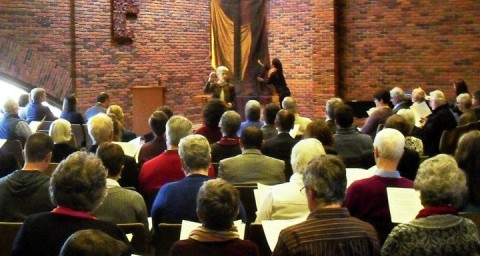The opportunity Stanley Hauerwas missed
Heirs to John Howard Yoder's legacy have to grapple with his theology in light of his sexual abuse. Hauerwas’s recent response isn’t enough.

Stanley Hauerwas’s reckoning with the sexual violence of Mennonite peace theologian John Howard Yoder is disappointing. Writing largely as a conversation between himself and his deceased mentor and colleague, Hauerwas fails to consider the needs and concerns of the people Yoder abused.
In a recent article, Hauerwas grapples with Yoder’s legacy of sexualized violence and refusal to submit to Mennonite church processes of accountability. Maybe Hauerwas didn’t intend this unhappy letter of repentance to be his first major public statement on the subject, but it is what we have.
I understand the shock of discovering the full extent of Yoder’s abuse as a sexual predator, which Hauerwas acknowledges having learned about from a report originally published almost three years ago. I also understand the need for time and space to recalibrate, on personal and professional levels. Yoder was an intellectual giant, and he shaped my theopolitical imagination, too. As a peacebuilding practitioner, I deployed some of his key terms and concepts in developing a political violence and peace monitoring project in war-torn Colombia. Now I'm assistant professor of peace studies and Christian social ethics at Anabaptist Mennonite Biblical Seminary—my role succeeds the one Yoder had at this institution. I understand the need to recalibrate. Recalibration is indeed necessary.





